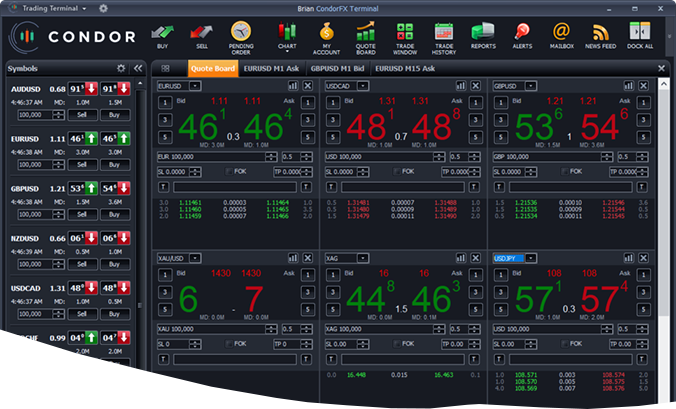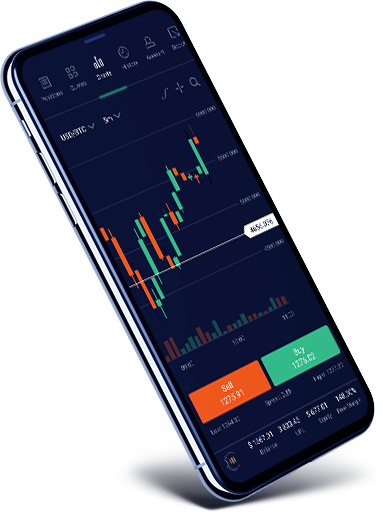What is a Forex PAMM / MAM?

The realm of modern trading offers exciting opportunities for both seasoned professionals and newcomers seeking additional passive income. If you are intrigued by financial markets but have a busy schedule, fear not; there are three innovative solutions tailor-made for you.
In this article, we’ll delve into the wonders of copy trading, PAMM, and MAM accounts, each offering unique advantages that might be the perfect fit for your trading aspirations.
With an increasing number of individuals expressing interest in the financial market, Forex and stock markets have become hubs where novices and pros alike can seek additional income or even discover new career paths. Recent years have witnessed the emergence of novel trading approaches that fuel this growth.
PAMM Account: A Progressive Solution
Among these approaches, the PAMM account stands out as a highly popular and progressive choice. PAMM, which stands for Percent Allocation Management Module, allows trading managers to handle pooled funds from various sources, termed sub-accounts. Experienced money managers promote their services on dedicated websites, showcasing their performance history, background, qualifications, account conditions, and commission structure for successful trades. The money manager is entrusted with investors’ funds, which incentivizes responsible trading and optimal results.
Investors interested in a specific account sign up for a “Limited Power of Attorney” agreement, acknowledging and accepting specific trading risks over a set period. Afterward, investors can withdraw their capital, continue investing with the same manager, or choose a different provider.
Opting for a reliable and well-regulated PAMM solution provider is crucial, ensuring transparent operations and security for investors’ funds. However, it is essential to acknowledge that no protective measure can guarantee immunity against potential losses resulting from account managers’ trading choices. Caution and careful consideration of advice from a reputable broker are paramount.
Advantages of PAMM Accounts
PAMM accounts offer a plethora of benefits, making them an attractive choice:
- Passive Income: Investors, regardless of their trading experience, can profit from trading without actively monitoring markets, conducting analyses, or dedicating time and effort.
- Efficient Trade Execution: Funds from multiple sources can be efficiently utilized on a single system, simplifying accounting.
- Experienced Money Managers: Entrusting funds to experienced traders enhances the likelihood of profitable returns.
- Incentivized Trading: Money managers invest their funds into the account and receive a commission only for profitable trades, motivating responsible trading.
- Diversification: Investors can select from various money managers to spread their funds across multiple accounts, diversifying their portfolios.
- Guarantor Role: The broker acts as a guarantor, preventing money managers from withdrawing funds and providing performance statistics of different PAMM accounts.
- Reinvested Profits: Profits are reinvested, generating interest on the initial deposit, a unique advantage over standard approaches.
- Flexibility: Investors can start with a specific amount of capital and gain insights into trading while the account manager handles their investments.
- Risk Management: Professional money managers strive to minimize losses and maximize winning trades, reducing the chance of significant capital loss.
- Platform Security: Reliable PAMM platform providers prevent manipulation of clients’ funds and collaborate with authorized regulators to ensure everyone’s protection.
Potential Risks of PAMM Accounts
Despite their merits, PAMM accounts also entail risks:
- Trading Risks: As with any form of trading, there is no guarantee of avoiding losses.
- Lack of Detailed Strategy: Detailed information about a money manager’s trading strategy might not always be readily available.
MAM Trading System: Multifaceted Management
The Multi-Account Manager (MAM) trading system empowers experienced investors to handle multiple trading accounts for various individuals. Trades executed by the leading manager are mirrored across a “pool of funds,” with trade sizes adjusted based on individual preferences or risk levels. MAM accounts enable investors to place their capital with professional traders, paying a commission for their services.
MAM systems vary among different online brokers, offering diverse rules and features. This trading solution allows clients to tailor their profiles according to their needs, ensuring transparency and flexibility. MAM is an ideal option for those who prefer minimal involvement in market tracking, as expert traders handle the task. It accommodates all levels of capital investment, from novice to experienced traders.
MAM Trading Pros and Cons
Pros:
- Transparency: Investors have clear visibility of their investments and can customize their profiles.
- Multiple Account Types: Providers offer various account types to suit different trading experiences and capital levels.
- Unlimited Accounts and Deposits: No restrictions on the number of accounts or deposit amounts.
- Passive Income: Professional traders execute trades, enabling passive profits for investors.
- Low Initial Investment: Clients can start with minimal capital, thanks to a 0.01 lot per trade option.
Cons:
- Interpretation Challenges: Understanding records of a MAM master might be complex without advanced tools.
- Trade Allocation Issues: In some cases, allocating trades across accounts with significantly different balances can lead to unbalanced trade shares.
- Abuse of Strategies: Dishonest customers might misuse or plagiarize MAM traders’ strategies for their own accounts.
MAM trading offers attractive benefits for both newcomers and seasoned traders. With expert traders managing investments, solid and passive profits are achievable without intensive trading involvement. However, potential risks should not be overlooked, necessitating careful consideration before investing.
Copy Trading: Embrace the Power of Replication
Copy trading opens new doors for traders and investors seeking profitability in financial markets. It allows individuals to automatically replicate trades opened and managed by licensed professionals, connecting a part of the copying trader’s capital to the account of the copied trader. Every trading decision made by the copied manager reflects in the member’s account, including position openings, Stop Loss, Take Profit orders, and position closures.
Copy trading caters to those with zero trading experience or seeking passive income. It enables clients to follow and analyze successful traders, refine their strategies, and diversify their investments. Each copy trading platform offers specific features, allowing traders to customize their portfolio, capital allocation, trading pairs, market selection, and more.
Realistic expectations are essential in investing, as no one becomes an overnight millionaire. Profitable trading is a long-term endeavor, subject to market fluctuations and risk management remains crucial.
In conclusion, copy trading, PAMM, and MAM accounts revolutionize modern trading, offering opportunities for all types of investors. By understanding the merits and risks of each solution, you can embark on a rewarding journey in the world of financial markets.
How Much Does It Cost to Start a Forex Broker?

Introduction: Understanding What is a Forex Broker
A Forex broker acts as an intermediary, connecting traders to the market and facilitating access to trading platforms for buying and selling currency pairs. These brokers offer valuable insights into the Forex market, along with useful tools like analysis charts and strategies. By utilizing a broker’s services, traders can benefit from leverage, allowing them to open larger positions than their capital would typically permit. Brokers must adhere to strict regulations imposed by different organizations to ensure responsible and lawful operations.
Factors Influencing Costs
The cost of establishing a Forex brokerage firm varies depending on the firm’s size and scope. Launching such a venture requires significant preparation and thorough research to ensure a successful start. Deciding the specific services the firm will provide is crucial, and estimating the cost of brokers starting the business is equally important.
Diverse Expenses to Consider
Initial costs encompass a wide range of elements, from office space setup with furniture and supplies to acquiring licensing rights for specific markets, leading to significant overheads. Thoroughly exploring various options is essential before making substantial investments.
Budgeting for Set-Up
Budgeting involves planning for licensing, software, hardware, and marketing expenses. Rent and employee wages are typical costs, while investments in licensing, software, hardware, and marketing are crucial for establishing a well-equipped brokerage firm.
Staff Considerations
Assembling the right team is paramount, and hiring experienced Forex staff can be the most significant expense. Having knowledgeable individuals who can make informed decisions and excel on behalf of the brokerage firm, even in customer service and dealing desk management, is indispensable.
Estimating Costs to Start a Forex Broker?
For those seeking specific figures, starting an Fx broker typically costs between $10,000 to $25,000. A white-label Forex brokerage firm can begin at the lower end ($10,000), while building everything from scratch may surpass $20,000. White-label solutions operate under another entity’s license, offering online trading services while receiving technology and liquidity from the host firm.
Researching small online brokerages can provide insights into cost-cutting strategies. By starting with a few clients and replicating best practices from cost-effective brokerages, you can build a strong foundation to maximize your investment.
Establishing an Fx brokerage firm need not drain your finances. Employ cost-effective solutions, research technology options, opt for reasonable-cost service providers like hosted cloud-based services, and carefully manage marketing costs to minimize initial investments.
Delving into Due Diligence Before launching your broker solution, be well-versed in all applicable laws and regulations concerning foreign currency trading. Conducting due diligence at the outset will provide the knowledge necessary for a successful establishment.
In conclusion, calculating costs is the first step toward establishing your Forex brokerage business. Factor in marketing, software, hardware, and licensing expenses, with hiring skilled labor constituting a significant investment. Researching new online brokerages and starting small with a few clients can be inspirational and help you successfully launch your Forex brokerage firm without breaking the bank.
What is the Difference Between a Forex Introducing Broker, Affiliate, and White Label?

In the online forex & CFD trading industry, three prominent partnership programs emerge: Introducing Broker (IB), affiliate, and the white label. While they may initially seem similar, each has distinct functions that set them apart.
Common Similarities
Both forex affiliates and introducing brokers offer clients specific market-related services and products. Introducing brokers, in essence, act as agents for brokerage firms, chosen based on criteria aligned with the company’s objectives. Forex introducing brokers often start as affiliates and earn the IB title after introducing at least 5 active clients.
Major Differences Between White Label, Affiliate, and IB: Diverse Payment Systems
Affiliates primarily rely on commissions from the forex broker for each referred client who deposits and trades. However, clients who register without trading do not count towards active clientele and yield no earnings for the affiliate. The commissions may also be affected by the broker’s eligibility criteria for clients.
Forex introducing brokers use a similar payment system but calculate earnings differently. Their commissions comprise both the spreads paid by the broker and a specific sum from the client. As a result, the percentage for each component may vary based on the broker’s conditions.
White Labels Are Unique
Forex white Labels differ from introducing brokers and regular affiliates by maintaining anonymity about their affiliations. They function as independent businesses aiming to provide brokerage services under their own brand. The contract between the broker and the white label affiliate offers greater customization options tailored to their business.
White label affiliation allows affiliates to create their own brand and sell goods or services from their website, leveraging existing traffic. The flexibility of white label programs empowers newly established companies to organize services and manage clients according to their vision.
Forex Consulting Services – Guidance in Launching a Forex Broker
Ultimately, the choice of partnership depends on individual goals and objectives. Each type – forex introducing brokers, affiliates, and white labels – comes with unique characteristics, advantages, and disadvantages.
Whether you are looking to become an affiliate or launch your own brokerage, our team of experts are here to assist you. Contact us today!
Is MetaTrader (MT4) 4 Obsolete?

Even if you have limited experience in the realm of forex & CFD trading, then you have most likely encountered MetaTrader 4 (MT4) during your trading career. After all, MT4 is the most recognizable trading platform in the world of forex and CFD trading.
Given the legacy of the technology, many traders often wonder if MetaTrader 4 is obsolete? In today’s column we’ll discuss this question at length.
How Long Will MT4 Be Totally Obsolete?
While it’s challenging to predict an exact timeframe, it’s important to note that the transition from MetaTrader 4 (MT4) to newer trading platforms such as MetaTrader 5 (MT5) is an ongoing process. The popularity of MT4 remains significant, with a large user base and a wide range of available tools and resources.
That being said, as technology advances and market dynamics evolve, there may come a point where MT4 becomes less prevalent and eventually considered obsolete. Several factors can contribute to this transition, including the discontinuation of support and updates for MT4, the introduction of new regulations or trading requirements that favor newer platforms, and the growing demand for advanced features and functionalities.
Will Forex Brokers Stop Using MT4 Anytime Soon?
MT4 has been a popular and widely adopted trading platform for many years, offering a range of features and capabilities that traders are accustomed to. However, it’s worth noting that MetaQuotes, the company behind MT4, has introduced a newer version called MetaTrader 5 (MT5), which offers additional features and expanded capabilities.
The timeframe for MT4 to become entirely obsolete will depend on various factors, including the adoption rate of alternative platforms, the preferences of brokers and traders, and the pace of technological advancements in the industry. It’s worth noting that the transition process can take time due to the significant user base and existing infrastructure built around MT4.
What Alternatives Are There to MT4?
There are several alternatives to MetaTrader 4 (MT4) that offer robust trading platforms with various features and capabilities. We consider the Condor platform to be the best alternative. Not only does the Condor FX Pro Trading Platform offer a variety of features for new and advanced traders alike, it is cost effective and easy to set up.
To check out a demo of the Condor platform, contact us today!
Establishing a Company in St. Kitts & Nevis: A Step-by-Step Process

Establishing a company in St. Kitts & Nevis can be a straightforward process with the right guidance and preparation. The first step is to choose the type of company you wish to form, which can be either a limited liability company (LLC) or an international business company (IBC).
LLC vs. IBC
If you are looking to operate a forex & CFD broker, we would recommend an LLC over an IBC. We suggest an LLC due to the relatively lower taxes compared to an IBC. Additionally, an IBC is generally intended for corporations that involve directors who reside in St. Kitts & Nevis. If your directors and owners are from abroad, then an LLC is preferred.
The Registration Process
For an LLC, you will need to register with the Financial Services Regulatory Commission (FSRC) and provide the necessary documentation. Our team will assist you in gathering what is required to form the company. Note that basic KYC is required such as notarized personal documents pertaining to all owners and directors.
Once your company is established, you will need to maintain it in good standing by filing annual reports and paying any required fees or taxes. You may also want to consider opening a local bank account and obtaining any necessary permits or licenses to conduct business in the area.
Forex Consulting – Guidance in Registering an Offshore Company in St. Kitts & Nevis
Overall, establishing a company in St. Kitts & Nevis can be a relatively straightforward process with the right preparation and guidance. It is important to ensure that you comply with all local laws and regulations and maintain your company in good standing to ensure ongoing success.
The Differences Between MT4 and MT5 Trading Platforms: An In-Depth Comparison

MetaTrader 4 (MT4) and MetaTrader 5 (MT5) are two of the most popular trading platforms in the forex industry. While they share many similarities, they also have distinct differences that can impact traders’ experiences. In this post, we will compare MT4 and MT5 to help you choose the best trading platform for your needs.
#1. User Interface
One of the most significant differences between MT4 and MT5 is their user interfaces. MT4 has a simple, user-friendly interface that is easy to navigate, making it an excellent choice for beginners. MT5, on the other hand, has a more complex interface with more features and customization options, making it better suited for experienced traders who want more control over their trading environment.
MT4 is known for its user-friendly interface and ability to run multiple charts and indicators. It also supports algorithmic trading through Expert Advisors (EAs). MT5, on the other hand, offers additional features such as the ability to trade more asset classes, improved backtesting capabilities, and a built-in economic calendar. The platform also supports more order types, including Stop Limit orders, and has a depth of market (DOM) feature that shows real-time order book data. Overall, MT5 offers more advanced features and is a better fit for professional traders, while MT4 is a more simple and straightforward platform that’s better suited for beginners.
#2. Trading Features
Both MT4 and MT5 offer a wide range of trading features, such as real-time market quotes, customizable charting tools, and automated trading through expert advisors. However, MT5 has more advanced features, such as a built-in economic calendar, a greater number of technical indicators, and more timeframes.
Despite being released in 2010, MT5 has not been able to overtake the popularity of its predecessor, MT4. This is largely due to the fact that MT4 has a large market share and is widely used by traders and brokers alike. While MT5 has been gaining traction in recent years, many traders still prefer MT4 for its simplicity and familiarity. This means that traders who want to access a wider variety of markets may need to use MT5, but those who are comfortable with MT4 will find it easy to use and widely available.
#3. Market Coverage
MT4 is primarily used for trading in the forex market, while MT5 provides access to other financial markets such as stocks, futures, and options. If you’re interested in trading other markets in addition to forex, MT5 may be the better choice for you.
#4. Programming Languages
MT4 and MT5 have different programming languages, which means that EAs and indicators created for one platform may not work on the other. This can be a significant consideration for traders who rely heavily on automated trading strategies. In addition, some brokers only offer one platform or the other, which means that traders may need to switch brokers if they want to use a specific platform. However, there are some brokers that offer both MT4 and MT5, which can provide traders with greater flexibility and choice.
#5. Backtesting
Backtesting is a crucial tool for evaluating the effectiveness of trading strategies. While both MT4 and MT5 provide backtesting capabilities, MT5 has a more advanced backtesting system that allows traders to backtest multiple currency pairs and timeframes simultaneously.
The Forex Consulting Team – Your Partner for Guidance in FX Trading Technology
In summary, MT4 and MT5 are both excellent trading platforms, but they have different strengths and weaknesses. If you’re a beginner trader looking for a simple and user-friendly platform, MT4 may be the best choice for you. If you’re an experienced trader who wants more advanced features and customization options, MT5 may be the better option. Ultimately, the choice between MT4 and MT5 will depend on your trading style, preferences, and goals.
How to Start a Forex Broker?

Starting your own Forex broker can be a challenging but rewarding endeavor. The Forex market is one of the most popular and lucrative markets in the world, with a daily trading volume of over $5 trillion. It offers an opportunity for entrepreneurs to start a profitable business and potentially achieve financial freedom.
The First Step: Planning Out Your Forex Broker
Before you start any business venture, it is essential to have a solid business plan in place. Your business plan should outline your objectives, target market, budget, and strategies for acquiring and retaining clients. A well-written business plan can help you secure funding, attract potential investors, and guide your decision-making process as you build your brokerage. We’ll cover the specifics of the business plan in the column.
The Next Step: Develop Risk Management Strategies
Once you have a thorough understanding of the market and the regulatory requirements, you can start setting up your Forex brokerage. The first step is to decide on the business model. There are two main types of Forex brokers: market makers and ECN/STP brokers. Market makers make money by providing liquidity to their clients, while ECN/STP brokers earn a commission on each trade.
Managing risk is a crucial aspect of running a successful forex brokerage. Develop robust risk management strategies, including margin requirements, stop-loss orders, and hedging strategies. Implementing these strategies can help protect your clients’ investments and mitigate the risk of losses for your brokerage.
Selecting the Best Licensing Jurisdiction
After deciding on the business model, you need to choose a jurisdiction to register your Forex brokerage. The jurisdiction you choose will impact your regulatory requirements, tax obligations, and operational costs. Some of the popular jurisdictions for Forex brokers include Cyprus, the UK, Australia, and several offshore jurisdictions.
Technology – An Important Consideration
The next step is to set up the infrastructure for your Forex brokerage. This includes setting up a trading platform, a website, and a customer support system. You can either develop your own trading platform or use a white-label solution provided by a third-party provider.
Selecting the right trading platform is essential for providing your clients with a smooth and efficient trading experience. Popular trading platforms include MetaTrader 5 (MT5) and Condor, both of which offer a wide range of features and customization options. You can also consider other trading platforms that offer unique features or cater to specific markets.
Forex Consulting – Your Partner for Starting a Forex Broker
Starting your own Forex brokerage requires a significant investment of time, money, and effort. However, if done correctly, it can be a profitable and fulfilling business. With the right mindset, knowledge, and resources, you can start your own Forex brokerage and potentially achieve financial freedom.
We understand the importance of selecting the right white label provider to ensure your brokerage has access to the necessary tools and resources to succeed in the highly competitive forex market. Our team is committed to providing personalized guidance to help you make informed decisions that align with your business goals.
If you’re ready to take the first step towards launching your brokerage, don’t hesitate to get in touch with us today. We’re excited to work with you and help you achieve your business objectives in the world of forex and CFD trading.
What are Some Alternatives to MT4 / MT5?

Now that MetaTrader 4 and MetaTrader 5 are no longer available in the iPhone store, many traders and brokers alike are seeking alternatives to MetaQuotes software. The recent changes by the Apple Store to ban MT4/MT5 has now drawn the attention of many software providers.
FDCTech – The Most Cost Effective MT4/MT5 Alternative
Having reviewed many platforms, we believe that FDCTech provides the best alternative to MetaTrader 4 and MetaTrader 5. Their flagship trading platform, known as Condor, has taken the market by storm due to its ease of use, robust back office, and cost effectiveness. Finally, FDCTech is the only provider we know of that can fully support prop trading.
Why Consider FDCTech as an Alternative to MetaTrader 4 / MetaTrader 5?

First, the Condor system allows brokers to fully customize the business from top to bottom. Unlike MT4/MT5, the front end can be completely changed to reflect a trading platform fully unique in the market place. This is a major advantage for brokers interested in promoting their own branding.
Secondly, the Condor system does not allow EAs or algos. While this initially may be viewed as a drawback, ask any broker and they will tell you that algos cause too many headaches. Most amateur MT4/MT5 traders run EAs which attempt to arbitrage pricing or take advantage of other system inefficiencies, in essence these are not trading strategies but ways to cheat a broker out of money.
Finally, the Condor system is cost effective and supports the growing prop trading market. Whether it is a traditional broker or prop trading, FDCTech is the ideal technology provider for the FX & CFD industry.
Guidance in Selecting Alternatives to MT4/MT5
Check out a demo today!
If you would like to have a full demo of the Condor system, contact us today to arrange a presentation!
MT4 & MT5 No Longer Available for Prop Trading Firms

The prop trading industry took an interesting turn of developments this week as MetaQuotes, the provider of MT4 and MT5 has stopped issuing new white labels. Effectively this means that proprietary trading firms can no longer start their own companies with MetaQuotes software.
The reason behind the decision by MetaQuotes is unclear. With this in mind, startups looking to launch their own forex or crypto prop firms must now seek alternatives.
Prop Trading Alternatives to MT4 and MT5
Our team of industry consultants can assist in providing alternatives. In fact, we have a complete software suite that we can present to you. Our Forex & Crypto Proprietary Trading technology offers everything need to successfully launch your own prop firm:
- Pre-made challenges,
- Auto-funding options
- Integration with most PSPs and LPs.
- Mobile, desktop, android
- Supports Subscriptions, A Book and B Book
Contact us Today to Book a Demo
To check our custom prop trading technology, simply contact us today to book a demo!
How Do Forex Brokers Make Money?

Any trader who has opened a live forex trading account for even a short period of time has probably asked themselves how forex brokers earn their money. This is a common question for those new to FX trading, which is why we wish to explore the subject in greater detail.
2 Main Avenues of Revenue for FX Brokers: DD & STP
There are basically 2 ways in which forex brokers generate revenue. We’ll briefly outline them and then dive into specifics. The first method is known as STP or straight through processing. With this approach the broker earns a certain dollar value per trade. The revenue model is rather simple: the greater the number of trades, the more revenue earned.
The second method is often referred to as a dealing desk (DD) model or market making. In this model the broker assumes the full risk of each trader received. In other words, if a trader buys EUR/USD in the trading platform, then the broker in effect is selling EUR/USD to them. To better understand, just imagine the mirror image of any trade you’ve ever placed with the potential loss or profit being on the book of the broker rather than yourself. In other words, the future movement of the currency pair determines the profit or loss for the broker.
How Forex Brokers Make Money with the STP Model?
STP stands for Straight Through Processing, which is just a fancy way of describing the flow of an order between a trader and broker. In this model, when a trader opens an order, ie buy EUR/USD then the broker also buys EUR/USD in their trading account, tacking on either a commission or spread mark up. The order in our example is sent to one of the liquidity providers the broker works with, meaning that no financial risk is undertaken with this business model.
As previously mentioned, brokers operating under the STP or NDD (No Dealing Desk) model must rely on client volume to earn revenue, the more volume, the more revenue. Many traders perceive this model as advantageous since the interest of the broker is aligned with the client.
The Dealing Desk Model: How do Brokers Earn from a Dealing Desk Set Up?
As already outlined, the dealing desk model involves a broker assuming the full risk of an order. With such a model the broker can earn from the losses of a client, although such an explanation is far too simple. Generally speaking a broker has more than 1 client so performs the same market analysis traders do. Based on the total exposure, ie the aggregate number of orders, the broker will decide if it is wise to exit the market via hedging or leave the exposure open. Profit is made by effectively managing all orders coming in.
One way to understand the DD model is to imagine a trading account where orders constantly appear in your account rather than being initiated by the trader. An effective risk management team will know how to manage this book of orders to mitigate risk and generate profits. For this reason, a DD model doesn’t imply that losses of clients are purely the revenue of the broker.
Forex Consulting – Your Partner for Selecting a Reliable Forex Broker
Thank you for checking out our article. The summary above is a very general subject, to fully understand both concepts one must engage further on the topic. Nevertheless, we find the outline satisfactory for a basic understanding of how forex brokers earn revenue.
If you would like guidance in selecting a forex broker, our team is here to assist you. Don’t hesitate to reach out to us for further guidance.





